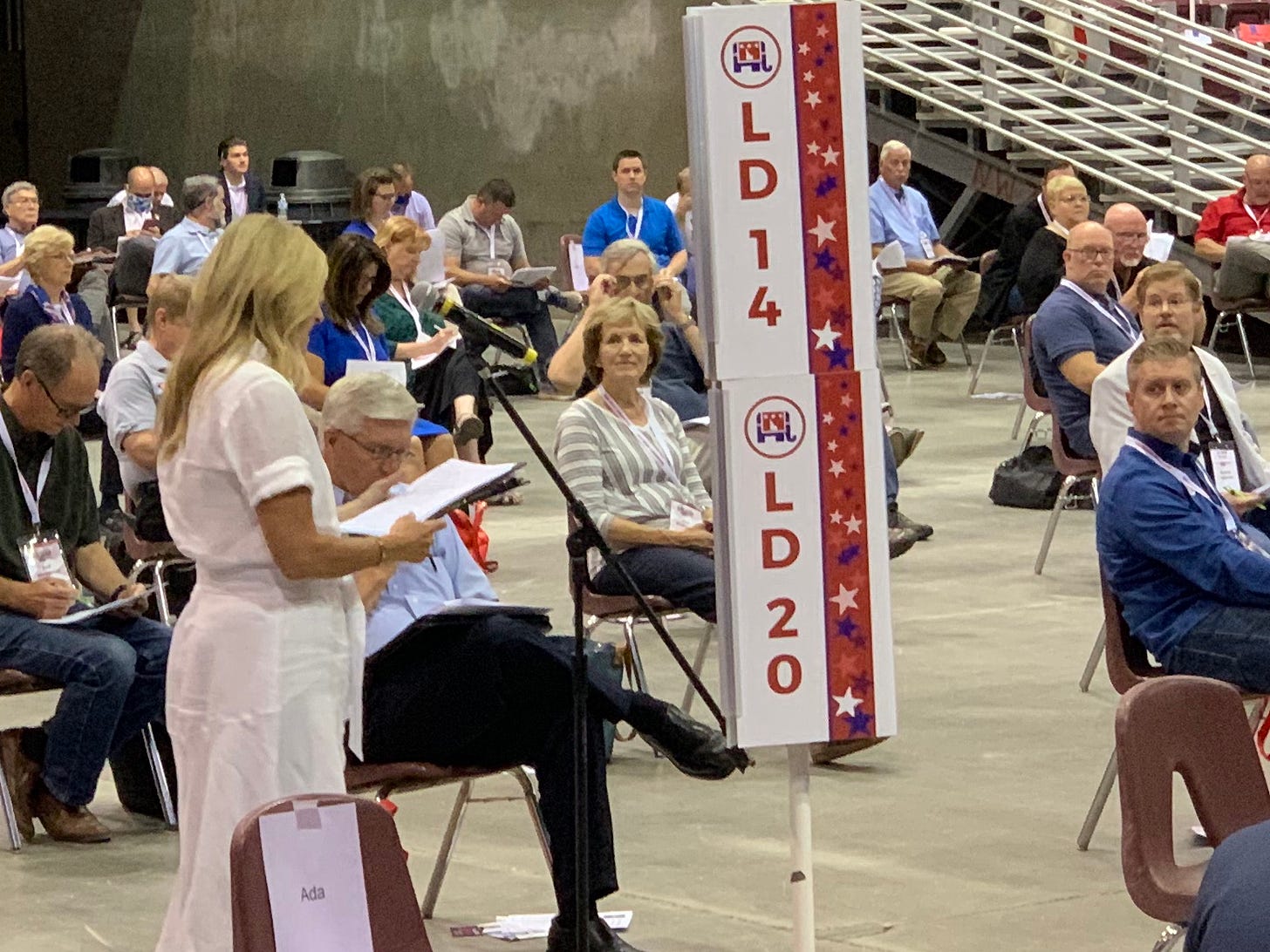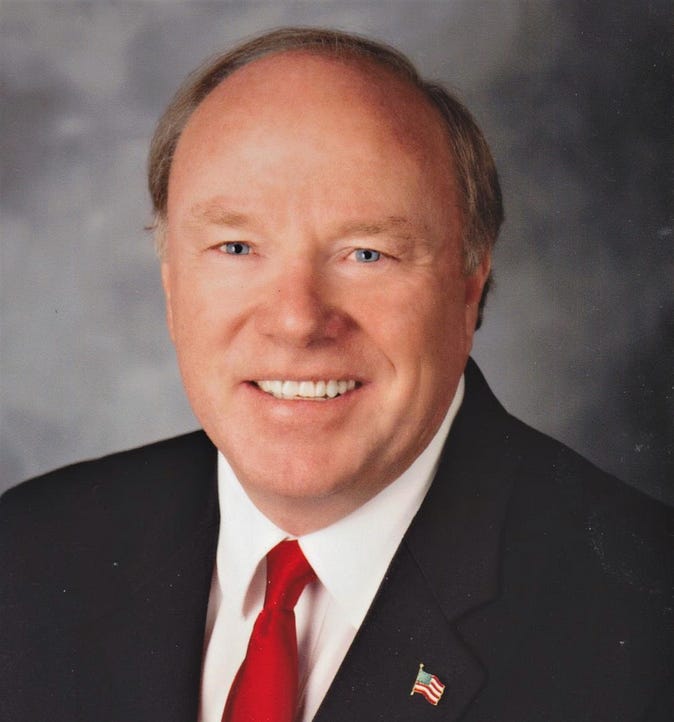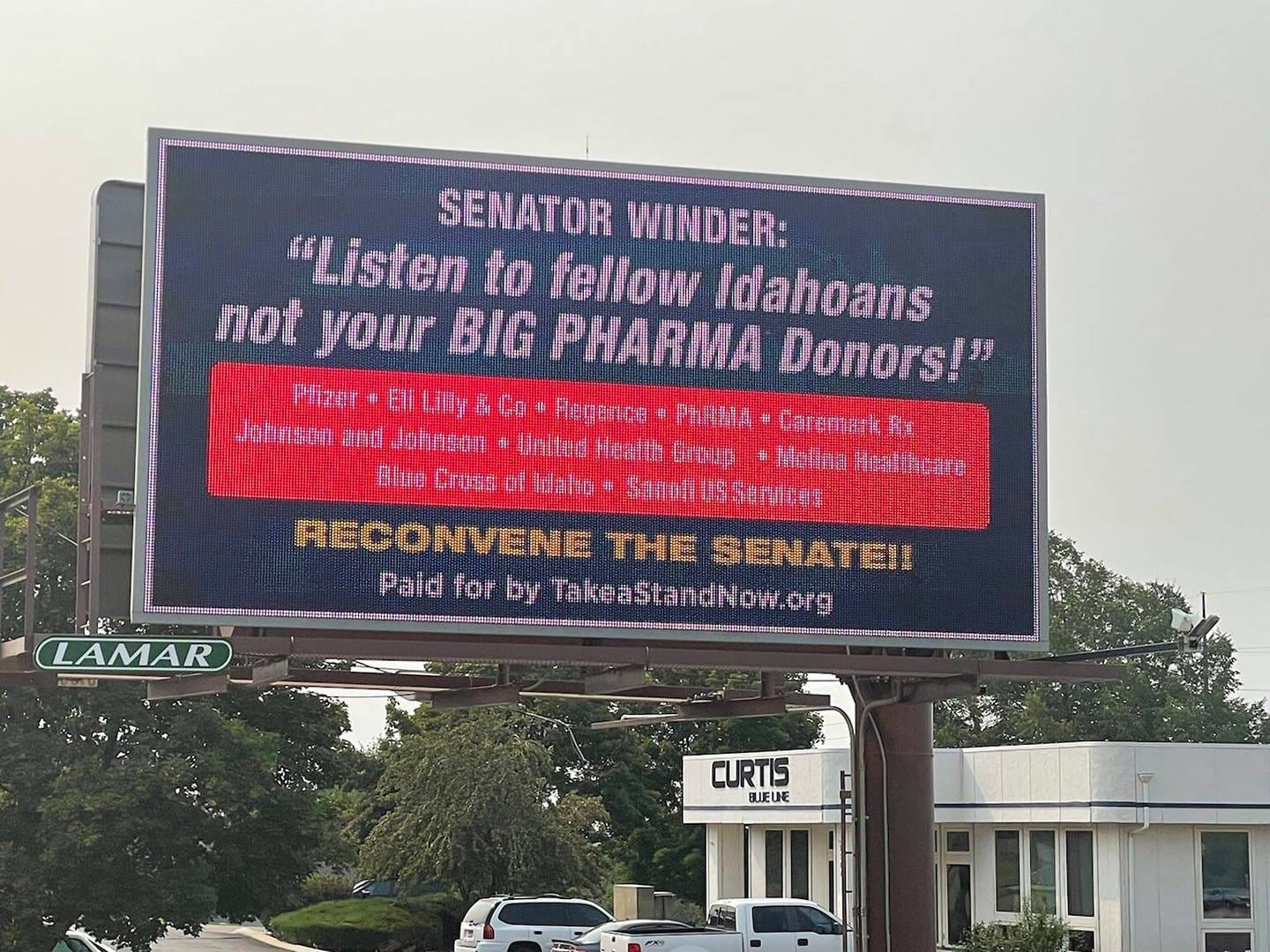(Note: This is part two of a series on Brad Little and the Idaho political machine. Today I will look at how conservatives have responded to the governor’s overreach, and how many in leadership are simply out of touch with their constituents.)
I said in part one that Governor Brad Little is 75% of what you want from a Republican leader. He has cut taxes, streamlined regulations, refrained from the worst overreaches of blue state governors such as Jay Inslee, Gavin Newsom, and Gretchen Whitmer, and he has signed bills to protect girls’ sports and the sanctity of life in Idaho.
So what is the problem? Why are tens of thousands of Idahoans supporting challengers in this year’s Republican primary? Why has the name of Bradley Jay Little become a curse word to many Idaho patriots?
It is simply because the remaining 25% is intolerable.
When the Covid-19 pandemic hit America in March of 2020, Governor Little declared a State of Emergency, which gave him and the executive bureaucracy tremendous latitude in implementing stay-at-home orders, mask mandates, distributing federal funds, and even altering state law. Many lawmakers and citizens begged the governor to recall the Legislature, but he preferred to rule like a king, with power unchecked by the other branches of government.
On May 28, 2020, a group of concerned citizens launched an effort to recall Governor Little. In order to be placed on the ballot, recall organizers needed to amass more than 180,000 signatures by mid-August. This number represented 20% of eligible voters in the last gubernatorial election. The deadline passed with zero signatures turned in, as the organizers destroyed the petitions knowing they had fallen short of the threshold.
The recall website was subsquently deleted, but it is still visible using the Wayback Machine.
In June of 2020, Republicans from throughout the state gathered in Nampa for the State Convention, where delegates debated the party platform, voted on resolutions, and prepared for the autumn elections. Repudiating Governor Little’s actions was high on the agenda. Many delegates put forth resolutions condemning Little’s Stay At Home Order as well as the state government declaring certain businesses non-essential. My own representative, Gayann DeMordaunt of District 14, proposed a constitutional amendment that would allow the Legislature to call itself back into session. This proposal was eventually adopted and passed by the Legislature in the 2021 session, and will come before the voters for ratification in November of this year.
When Governor Little himself spoke at the Convention, several delegates stood up and turned their backs to him. They had hoped that enough people would join them to make a noticeable statement, but only a few actually did it. I was at the Convention, and remained respectfully seated - I did not believe this was the proper way to express our disagreement at the time.
While Governor Little’s position remained secure with his big business and special interest allies, many sensed that he might be unpopular enough with the rank-and-file to be vulnerable to a primary challenge. As 2021 began, many challengers proclaimed their desire to dethrone King Brad. Has any primary campaign in the history of the state of Idaho started a year and a half before the first votes are cast?
Three candidates have separated themselves from the pack: Lieutenant Governor Janice McGeachin, rancher and activist Ammon Bundy, and financial advisor and GOP official Ed Humphreys. I will have more to say about each of these unique candidates in a future post.
While the proposed constitutional amendment allowing the Legislature to call itself into session in the event of an emergency is a good start, the process for enacting it is very slow. In the meantime, federal, state, local, and private mandates are being imposed quickly. It has also become apparent that Governor Little is not the only Idaho Republican who is out of touch with the zeitgeist.
The Legislature appeared to be caught off guard when big corporations began announcing vaccine mandates. While health freedom was already a major topic, the 2021 session finished without any meaningful legislation. In July of 2021, the big three healthcare conglomerates - St. Luke’s, St. Alphonsus, and Primary Health - announced vaccine mandates for their own workers. Facing the prospect of thousands of nurses, doctors, and hospital staff being fired for refusing the vaccine, many Republican leaders simply shrugged. When pressed, they retreated to Reagan-era platitudes, saying that it was not in the spirit of conservatism to interfere with private businesses.
This argument is tempting for career politicians looking to avoid controversy, but is ridiculous on its face. Title 44 of the Idaho Statutes has more than twenty chapters regulating businesses in the state. Preventing workers from being fired for refusing an experimental vaccine is not some crazy idea that will lead inevitably to socialist central planning. Governor Asa Hutchinson of Arkansas made the same specious argument when he refused to sign a bill prohibiting puberty blockers for children - thankfully the legislature was able to override his shameful veto.
The fact is that many Republican leaders seem to have accepted the media portrayal of the Covid-19 pandemic at face value. The official story of the pandemic is that Covid-19 is a deadly plague that kills indiscriminately, and taking the full course of vaccines (up to four shots as of this writing) is the only way to save yourself and your family from certain death. Anyone who turns off CNN for a few minutes can see that this is nonsense. Covid-19 disproportionately affects the elderly and obese, as well as those with preexisting health problems. The vaccines might have initially had some level of efficacy, but it falls well short of the promises of immunity made in the spring of 2021. For young and healthy people, possible side effects of the vaccine are likely worse than the disease itself, which is often relatively mild. (None of this is medical advice, of course - everyone should consult a trusted physician before choosing a course of action for themselves.)
This common sense was lost on many Republican leaders. Whether due to a naive trust in government and media, or perhaps their own personal fears of Covid-19 itself, too many of our elected representatives have been unprepared to stand up to medical tyranny. Governor Little has spent the past two years demanding Idahoans “mask up” and take their vaccines. In August of 2021, just days before the new school year was to begin, Little made a subtle threat, saying “Our main defense in ensuring the new school year is entirely in-person - free from outbreaks and quarantines - is the COVID-19 vaccine.” The fact that the vaccine had not, and has not, prevented outbreaks, did not seem to register with the governor.
Senator Fred Martin of District 15 might be the epitome of the machine politician who is out-of-touch with his own voters. As chairman of the powerful Health and Welfare Committee, Senator Martin has tremendous discretion in which bills he allows to come to a vote and which ones he lets die without a hearing. Many legislators began the 2021 session with bold bills to restrict the powers of the government and preserve freedom from medical tyranny, only to see them die in Senator Martin’s trash can. One example was Representative Tammy Nichols’ bill H63 which would ensure health freedom for all Idahoans. Senator Martin’s response, according to Representative Nichols, was that “…he would not allow any public hearings regarding vaccines this year, that this won't happen in Idaho, and that if the Feds tell us we have to, then we have to.”
In July, he posted on Facebook that “Anti-vaxxers [use] misinformation to lead others over the cliff.” In August, he responded to a question from a constituent by saying the vaccine issue was “life or death”. Senator Martin clearly believes in vaccines - he sits on the Idaho Immunization Board, which is tasked with expanding access to vaccinations for children. But is his support of the Covid-19 vaccine motivated entirely by a fervent belief in their efficacy?
Senator Martin has received thousands of dollars in campaign contributions from Idaho’s healthcare establishment. On the other hand, less than 1% of his total campaign contributions in 2020 came from individuals within his own district. I think it is fair to say that Martin and many of his colleagues do not represent the people of Idaho so much as Big Pharma.
The 2021 Legislature learned their lesson from 2020 and chose not to adjourn sine die, which allowed them to return without the governor’s blessing. When the big three healthcare companies announced their vaccine mandates in summer of 2021, many representatives demanded their leaders reconvene the Legislature to deal with these issues. Yet House Speaker Scott Bedke and Senate Pro Tempore Chuck Winder did not seem to appreciate the gravity of the situation.
The Legislature finally agreed to come back into session in September. Did they address health freedom? Did they address the specter of mass firings due to employer mandates? Did they spend any time at all on the peoples’ business? No. All they managed to accomplish was a censure of Representative Priscilla Giddings (at the behest of her opponent in the primary campaign for Lieutenant Governor, none other than House Speaker Scott Bedke - more on that story in a future post!) and then they adjourned. What a farce!
The Legislature began its 2022 session this week, and our representatives once again have big plans for health freedom, school choice, and election integrity. But fossils like Brad Little, Fred Martin, and Scott Bedke still stand in the way of meaningful action. What will it take to change things in Idaho?
In part three I will take a look at some of the men and women who are trying to make a difference.
If you enjoy this sort of analysis, please share and subscribe!







